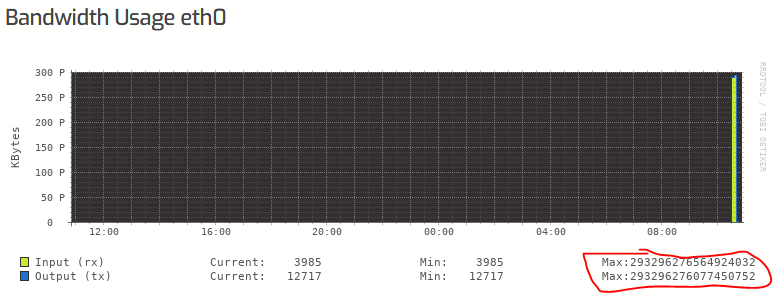Let me take part in this testing 
Install
Installed on: Hetzner Cloud CPX11 (AMD EPYC 2nd generation), 2vCPU, 2GB RAM
Installed with the commands:
wget https://raw.githubusercontent.com/hestiacp/hestiacp/master/install/hst-install-ubuntu.sh
bash hst-install-ubuntu.sh --nginx yes --apache yes --phpfpm no --multiphp yes --named yes --vsftpd yes --proftpd no --iptables yes --fail2ban yes --quota yes --exim yes --dovecot yes --spamassassin no --clamav no --mysql yes --postgresql no --interactive yes --hostname $(hostname -f) --email [EMAIL] --port [PORT] --api yes
I didn’t face any installation issues, apart from this. But that was my bad, cause I installed and configured /etc/fstab before installing Hestia. So I didn’t pay attention to that error.
Post Install Issue 1
I logged in to the web interface and started to look around. First issue I noticed is in Server > Task Monitor Under Bandwidth Usage eth0 I see this:
But I don’t think this is important and I expect for stats to even out eventually.
Post Install Issue 2
I confirm the issue with fail2ban: Clicking the Server menu, I see that fail2ban is not active (greyed out), although issuing the command systemctl status fail2ban.service I get the reply that the service is loaded and active
● fail2ban.service - Fail2Ban Service
Loaded: loaded (/lib/systemd/system/fail2ban.service; enabled; vendor preset: enabled)
Active: active (running) since Sat 2020-05-16 10:34:41 EEST; 18min ago
Docs: man:fail2ban(1)
Process: 629 ExecStartPre=/bin/mkdir -p /run/fail2ban (code=exited, status=0/SUCCESS)
Main PID: 701 (f2b/server)
Tasks: 15 (limit: 2256)
Memory: 16.0M
CGroup: /system.slice/fail2ban.service
└─701 /usr/bin/python3 /usr/bin/fail2ban-server -xf start
Even if I go and see other parts of the Web Panel, whenever I return to the Server, the fail2ban service is greyed out. Clicking Start or Restart from within the Web interface, I get the confirmation dialog if I wan to (re)start it, but even if I click OK the service status (on the web interface) doesn’t change.
One thing to note here is that fail2ban seems to be working OK, because I can see banned IPs in Server > Firewall > Managed Banned IPs
Post Install Issue 3
Clicking the Server menu on the web UI, I see that Hestia version 1.1.2 is installed. But when I go to Server > Updates it’s showing hestia version 1.1.1. Since this is a test release, I wouldn’t say this is a real issue, but devs will be the judges of that 
I haven’t loaded any domains yet, but I’ll get back when I do.
